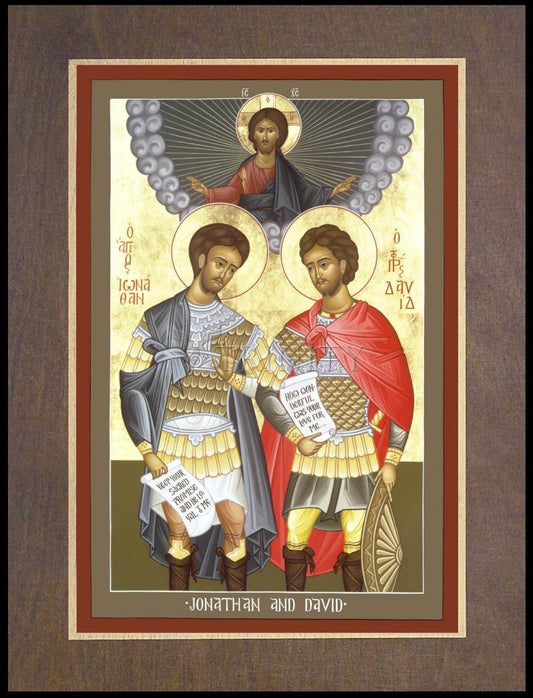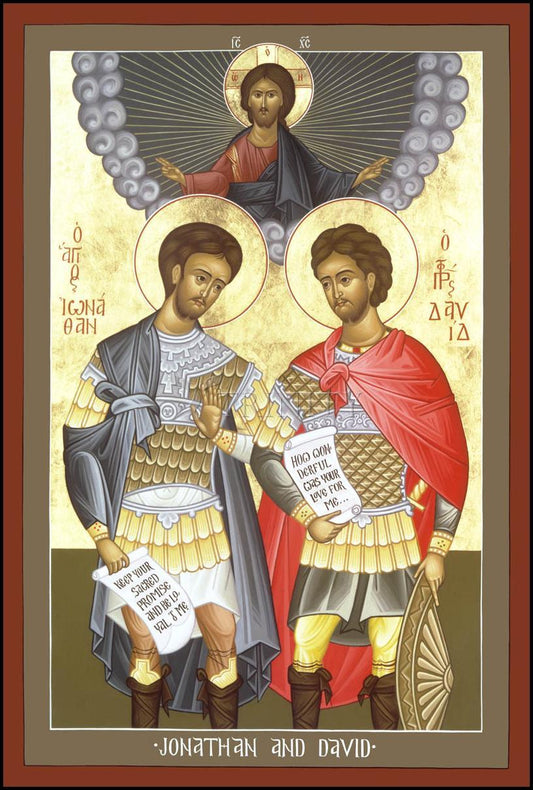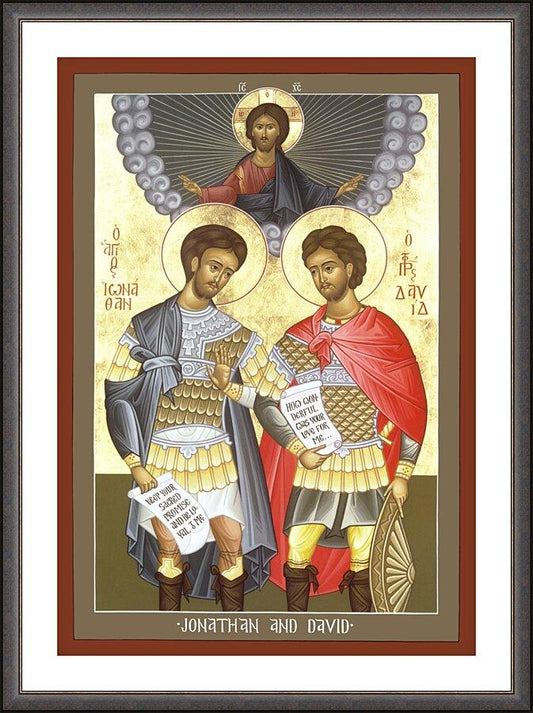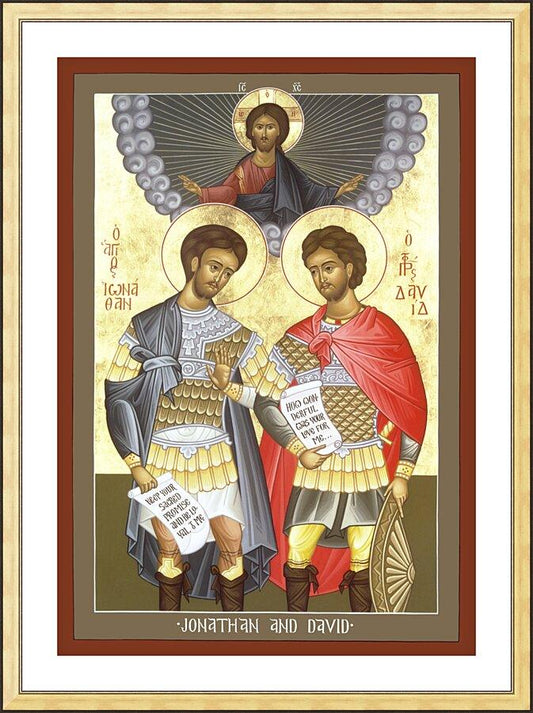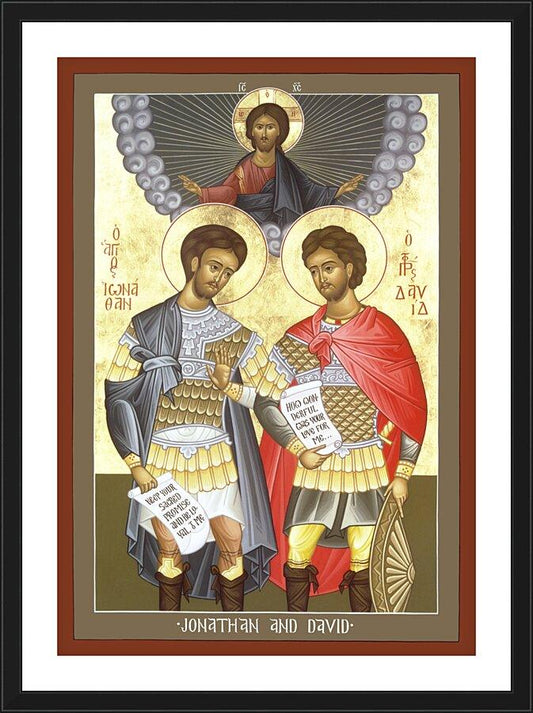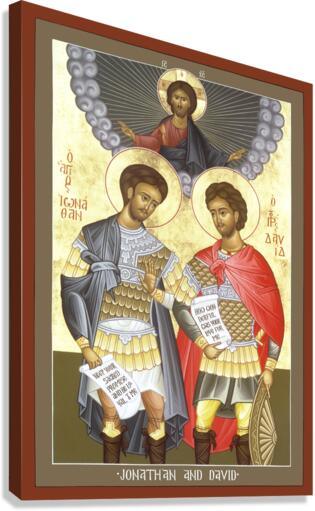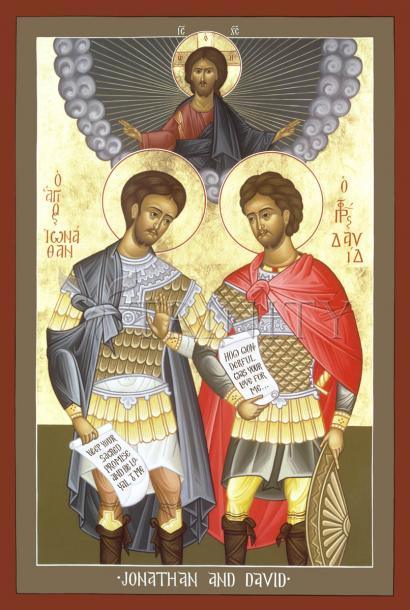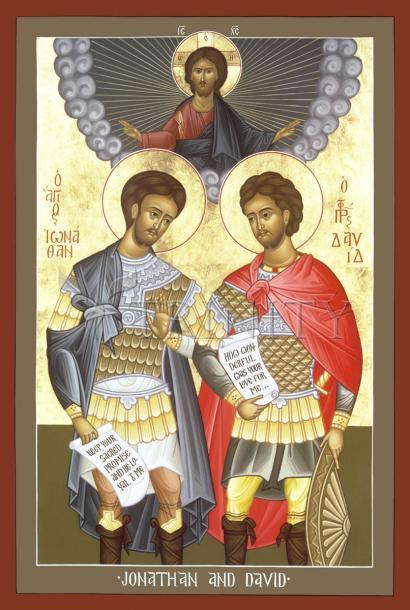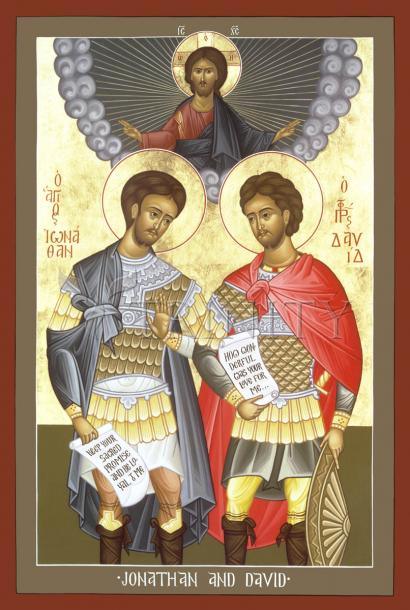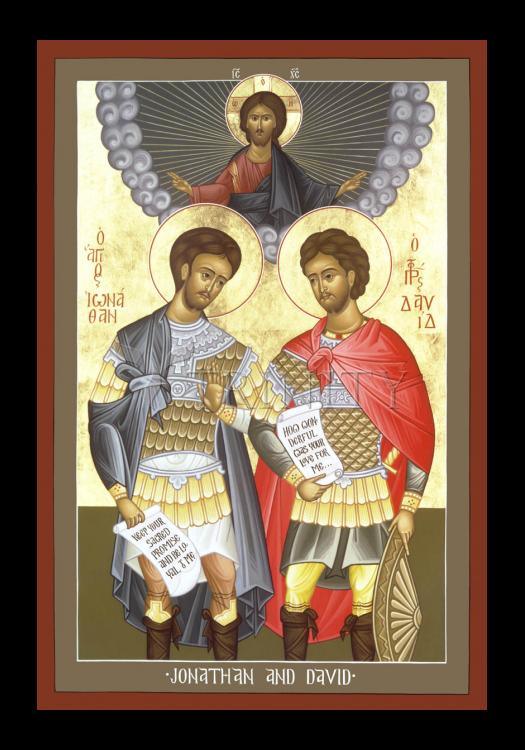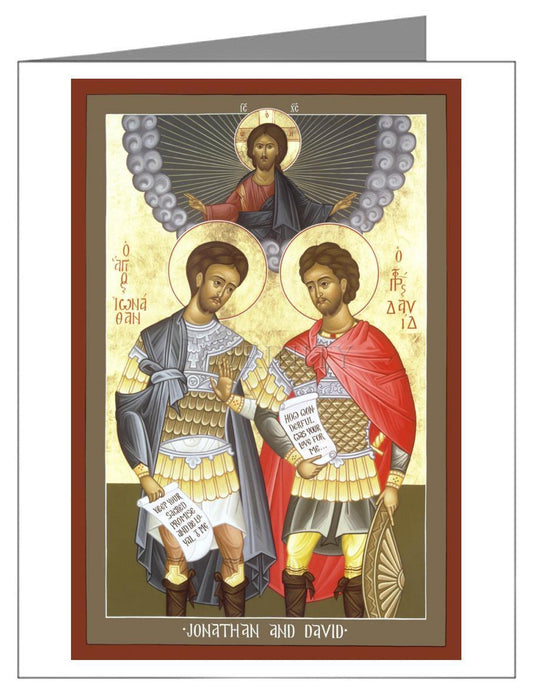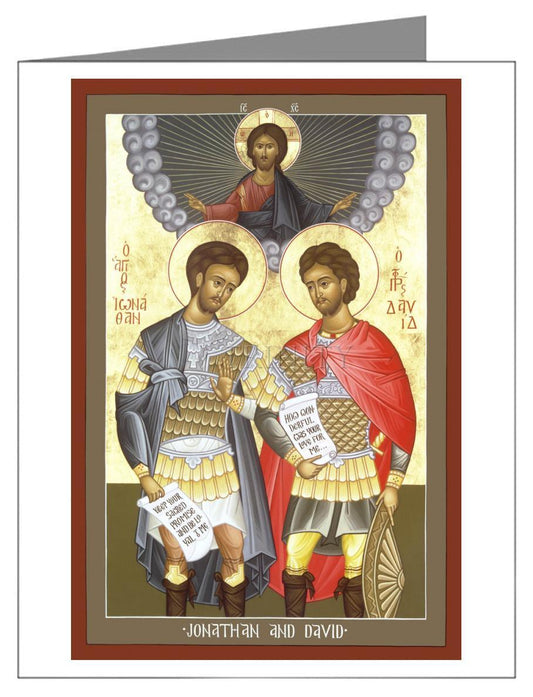Collection: Jonathan and David
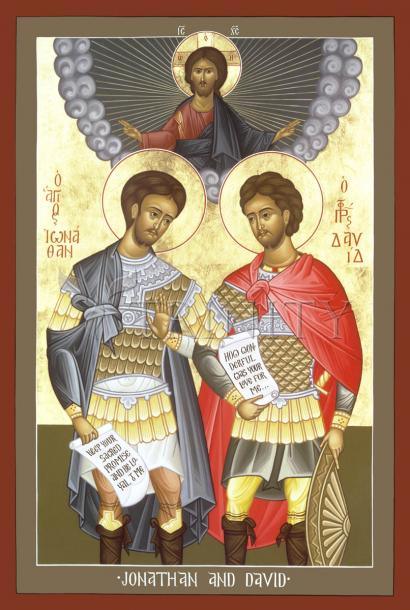
-
Sale
Wood Plaque Premium
Regular price From $99.95 USDRegular priceUnit price per$111.06 USDSale price From $99.95 USDSale -
Sale
Wood Plaque
Regular price From $34.95 USDRegular priceUnit price per$38.83 USDSale price From $34.95 USDSale -
Sale
Wall Frame Espresso
Regular price From $139.95 USDRegular priceUnit price per$155.50 USDSale price From $139.95 USDSale -
Sale
Wall Frame Gold
Regular price From $139.95 USDRegular priceUnit price per$155.50 USDSale price From $139.95 USDSale -
Sale
Wall Frame Black
Regular price From $139.95 USDRegular priceUnit price per$155.50 USDSale price From $139.95 USDSale -
Sale
Canvas Print
Regular price From $84.95 USDRegular priceUnit price per$94.39 USDSale price From $84.95 USDSale -
Sale
Metal Print
Regular price From $114.95 USDRegular priceUnit price per$127.72 USDSale price From $114.95 USDSale -
Sale
Acrylic Print
Regular price From $114.95 USDRegular priceUnit price per$127.72 USDSale price From $114.95 USDSale -
Sale
Giclée Print
Regular price From $19.95 USDRegular priceUnit price per$22.17 USDSale price From $19.95 USDSale -
Custom Text Note Card
Regular price From $300.00 USDRegular priceUnit price per$333.33 USDSale price From $300.00 USDSale
ARTIST: Br. Robert Lentz, OFM
ARTWORK NARRATIVE:
The story of the love between Jonathan and David is recorded in 1 and 2 Samuel in the Bible. These two young men became the closest of friends, and remained so even when Jonathan’s father, King Saul, drove David from his court. When Jonathan and Saul were slain, David mourned for Jonathan with these words:
“O Jonathan, in your death I am stricken,
I am desolated for you, Jonathan, my brother.
Very dear to me you were,
your love to me more wonderful
than the love of a woman.”
Times have changed since these events were recorded, and such intense love between two men makes many uncomfortable in our day. For gay men who struggle to remain within the Judaeo-Christian tradition, however, the love between Jonathan and David is an inspiration and strength.
- Lentz collection:
-
Ecumenical Icons
Jonathan
Jonathan was very different from his father. In every experience Jonathan displays a sterling character. If Saul does nothing because he's lost his faith, Jonathan always steps out in full assurance that the Lord will bless him. At a time when Saul had reigned just two years we find him with 2,000 chosen men and Jonathan with 1,000. Yet it was Jonathan who smote the garrison of the Philistines. (1 Samuel 13:3) In reaction to this provocation, the Philistines came up against these 3,000 men of Israel with 30,000 chariots, 6,000 horsemen, and people as the sand which is on the seashore. (verse 5) The people fled.
Saul had lost his faith. In the next chapter where Saul rests under a pomegranate tree, Jonathan and his armor bearer take on the Philistines. This was not foolishness; it was faith: “Let us go over unto the garrison of these uncircumcised: it may be that the LORD will work for us, for there is no restraint to the LORD to save by many or by few." (1 Samuel 14:6)
The odds were impossible from the standpoint of human reckoning, but human reckoning takes no notice of the Lord and his might. In fact with the Lord on Jonathan's side the odds were now heavily against the Philistines. Just two men, and faith, and the Lord, and “there was trembling in the host in the field, and among all the people, the garrison, and thespoilers, they also trembled, and the earth quaked." (1 Samuel 14:15) The result was that the Philistines killed each other.
Many years later, at the end of his 40-year reign, Saul died battling these same Philis tines. He had achieved absolutely nothing by his reign. He left the land as he had found it, still under the oppressive hand of a great foe.
This was exactly the story of the Jewish age, the age of the Law. Sin and death continued to reign and to oppress mankind. In the battle that claimed Saul's life, Jonathan, still byhis father's side, also died. But he left behind those wonderful memorials to the power and victory of faith which were made so much grander when contrasted to the failure of the power of the flesh.
David
David was thirty years old when he began to reign (2 Samuel 5:4). This means he had not yet been born when Saul began his reign. It also means that Jonathan was much older than David since we find Jonathan commanding men at Saul's right hand at the beginning of his reign and having one of only two swords in all Israel. Samuel's prophetic statement that God wanted someone after his own heart concerned not faithful Jonathan, who was already on the scene, but someone who had not yet been born. And Jonathan said to David, “The Lord be between me and thee, and between my seed and thy seed for ever." (1 Samuel 20:42) When Goliath challenged Israel and that nation's tallest man cowered in fear, it was little David who said, “Who is this un circumcised Philistine that he should defy the armies of the living God?" (1 Samuel 17:26)
Eliab, David's oldest brother, was annoyed by this display of simple faith. To Eliab, David was obviously blind to the realities of the situation. But David was showing a simple trust in the Lord's ability to do the impossible wherever and whenever He wished. We all know what happened. David's pebble from the brook found its mark just as individual promises of God personally selected from the brook of living water stand ready for our times of need when Satan assails. We remember how the Lord Jesus in the wilderness of temptation, when confronted by the adversary's challenge, placed the pebble in the sling of faith and hurled it with the force of total conviction: “It is written" (Matthew 4:4,7,10). A “thus saith the Lord" is more than enough.
Jonathan undoubtedly saw everything that happened between David and Goliath on that fateful day and how it must have warmed his heart! This little lad shared the same faith, was equally convinced that the fierceness of the opposition meant nothing when you had the power of the Lord God on your side. David had the same zeal, the same attitude, the same total trust in God. Jonathan himself would undoubtedly have gone up against Goliath if not prevented by his father Saul.
When we see the animosity Saul expressed toward David, we are reminded of the hatred the leaders of the Jewish age had toward the antitypical David. Those of natural Israel in the time of our Lord were not men of faith. They were proud of their own ability, proud oftheir meticulous care in keeping the rituals ofthe Law. When confronted with one after God's own heart, they eventually killed him.
But the “soul of Jonathan was knit with the soul of David, and Jonathan loved him as his own soul." (1 Samuel 18:1) What beautiful words, for the faith of Jonathan illustrates for usthe faith of all those worthy ones of old who“subdued kingdoms, wrought righteousness... waxed valiant in fight, turned to flight the armies of the aliens." (Hebrews 11:33,34) There were, of course, occasions when Saul's anger was directed at Jonathan to the point where he tried to kill him. (1 Samuel 20:30-33)
Jonathan, a much older man than David, was embraced in a loving union with the much younger man. Jonathan recognized that it was young David that God had favored. Though Jonathan would be the natural successor to his father, he recognized in the young man the choice of the Lord and that he would be the next king, not himself. So he did a remarkable thing: he stripped himself of his robe, his garments, his bow, and belt and placed them upon David. (1 Samuel 18:4) It was the highest honor he could bestow upon David.
Clothing possesses something of a wearer's personality, so in giving clothing the wearer gives himself symbolically to the other. To receive any part of the dress that had been worn by a sovereign or his son and heir was deemed the highest honor that could be bestowed upon a subject. This is nicely illustrated in (Esther 6:8,9), when the king's apparel was to be placed upon the man that the king delighted to honor.
So full was the heart of Jonathan with the one desire to honor and acknowledge the will of God that he at once bowed to this choice of the Lord. If this was the Lord's choice, then it was Jonathan's choice too. What a wonderful attitude. Would we have been as ready to stand back for others to take high privilege? Most assuredly yes, if we have the right heart attitude.
Beautifully expressed was the Jonathan spirit in John the Baptist, greatest of the worthies of old: “Ye yourselves bear me witness, that I said, I am not the Christ, but that I amsent before him. He that hath the bride is the bridegroom: but the friend of the bridegroom, which standeth and heareth him, rejoiceth greatly because of the bridegroom's voice: this my joy therefore is fulfilled. He must increase, but I must decrease." (John 3:28-30) Simeon too, in the temple: “Lord, now lettest thou thy servant depart in peace, according to thy word: for mine eyes have seen thy salvation." (Luke 2:29,30)
David refused to wear Saul's armor in the face of Goliath. It did not fit him. It was the armor of the works of the flesh and would have weighed him down, inhibited him, rather than helped him in any way. That is also what the flesh does to us. It weighs us down and limits us. But David accepted Jonathan's robe of faith. Jonathan gave all that he possessed, but David had nothing to give in return except his esteem and love. (1 Samuel 20:17) The Ancient Worthies have left us their lives as an example and encouragement. For these gifts we can make no return except to wear worthily these garments of courage and trust in the service of God.
Jonathan also gave David his sword, that precious sword symbolizing the spirit of the promises of the word of God. It was not a gift for the faint-hearted. Saul had a similar sword but forgot that it must be grasped with faith. Jonathan demonstrated just what that sword could do in the hands of one who trusts in the Lord's power. The Lord may use thousands or he may use just one to achieve his victories. He is not limited by the power of the flesh.
We, brethren, now have the sword of Jonathan, and his bow, and his girdle. Why are they entrusted to us? Because the Lord sees that we have the ability to take him at his word and to go forth in the certain knowledge that he that is for us is far greater than all those that be arrayed against us. In trusting hands these are the most devastating weapons this earth has ever known. And God has put them into our hands so that they may be used in the continual battle with the enemies of the soul.
“And David spake unto the Lord the words of this song, in the day that the Lord had delivered him out of the hand of all his enemies, and out of the hand of Saul." (2 Samuel 22:1) If we are properly exercised, at the end of our course we shall be able, like David, to sing this song of victory given to us by the Lord.
—Donald Holliday

